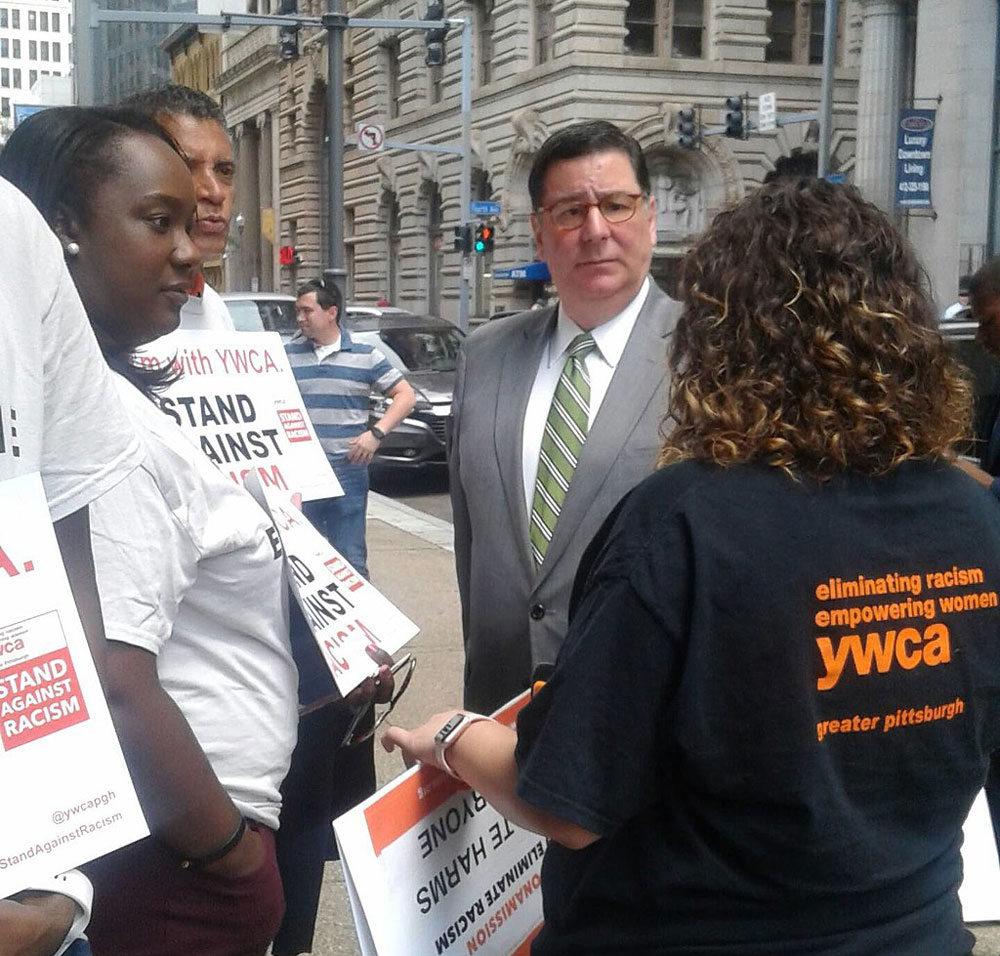
January 30, 2020; CityLab
At the close of 2019, Pittsburgh declared embedded racism “a public health crisis affecting our entire city.” This was an act of recognition by the city’s leaders of the profound impact of racial inequities on the health of its black and brown residents. It is easy to understand the threats to neighborhoods made proximate to landfills, industrial parks, chemical plants, and other sources of toxic air, water, and soil. Less obvious are the ongoing assaults from the cultural and social pollution of white supremacy.
The US Centers for Disease Control and Prevention underscore the need to think more broadly about public health:
Our health is also determined in part by access to social and economic opportunities; the resources and supports available in our homes, neighborhoods, and communities; the quality of our schooling; the safety of our workplaces…and the nature of our social interactions and relationships. The conditions in which we live explain in part why some Americans are healthier than others and why Americans more generally are not as healthy as they could be.
Consider the economic challenges racism has left behind. According to a recent CityLab article by Brentin Mock, “Pittsburgh has some of the lowest rates of black women participation in the labor force and black men have some of the lowest average incomes of most cities in the US, according to Pittsburgh’s race and gender disparity study. The Cleveland Federal Reserve reported last year that Pittsburgh experienced one the largest gaps in earnings between white and non-white workers of any major metro between 2007 and 2017. Minority earnings dropped four percent in that time period while earnings for white workers increased by 13 percent.”
Sign up for our free newsletters
Subscribe to NPQ's newsletters to have our top stories delivered directly to your inbox.
By signing up, you agree to our privacy policy and terms of use, and to receive messages from NPQ and our partners.
In the same article, Allegheny County Health Department maternal and child health program manager Dannai Wilson described the direct impact of racism, calling “chronic exposure to structural and institutional racism” the leading cause of high infant mortality rates among black women, “regardless of a mother’s socioeconomic status or educational attainment.”
Pittsburgh joins other Midwest cities, like Wisconsin’s Madison and Milwaukee, in giving credence to public health experts who say racism directly affects physical well-being and life expectancy. In that conclusion, the American Public Health Association is clear: “To achieve health equity…we must address injustices caused by racism. We must support actions at all levels to ensure equal opportunity for all.”
Pittsburgh’s resolution asks the city to “incorporate into organizational work plans educational efforts to address and dismantle racism, expand the understanding of racism, and how racism affects individual and population health, and provide tools to assist members of local government to engage actively and authentically with [and] advocate for relevant policies that improve health in communities of color.”
It’s important not to focus just on environmental and economic symptoms; living in a racist world is harmful in itself. Pittsburgh’s recognition of the holistic impact is one more step forward in building governmental and nonprofit efforts that can fully address the unresolved and festering legacy of our history as a slave-owning nation.—Martin Levine










